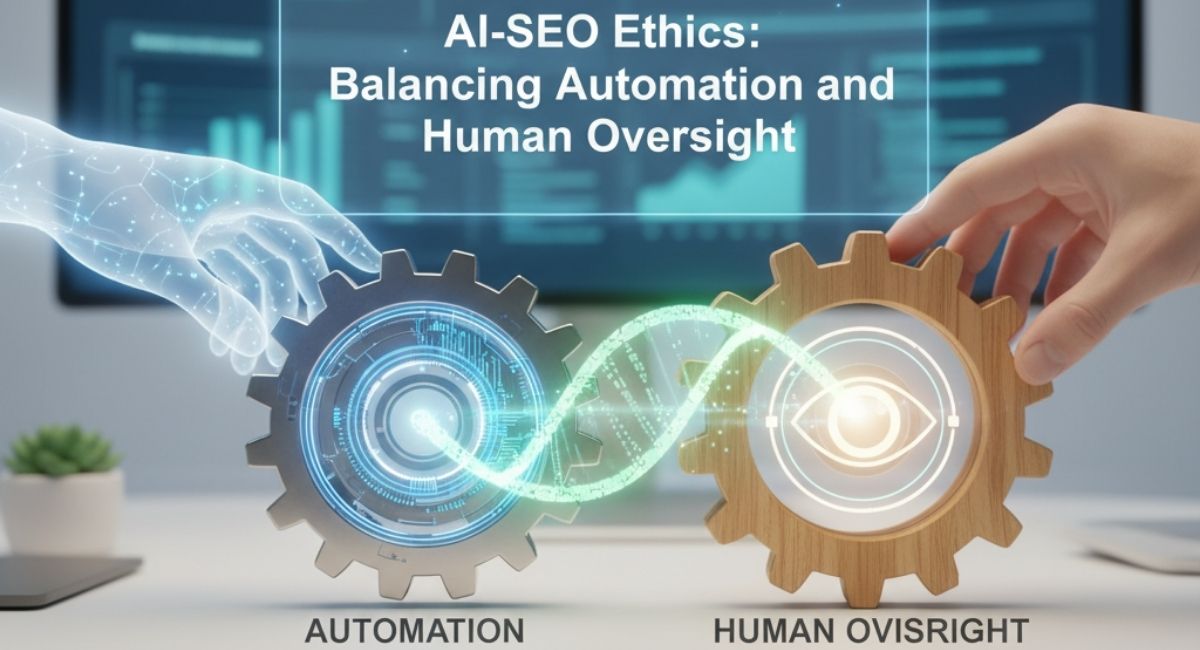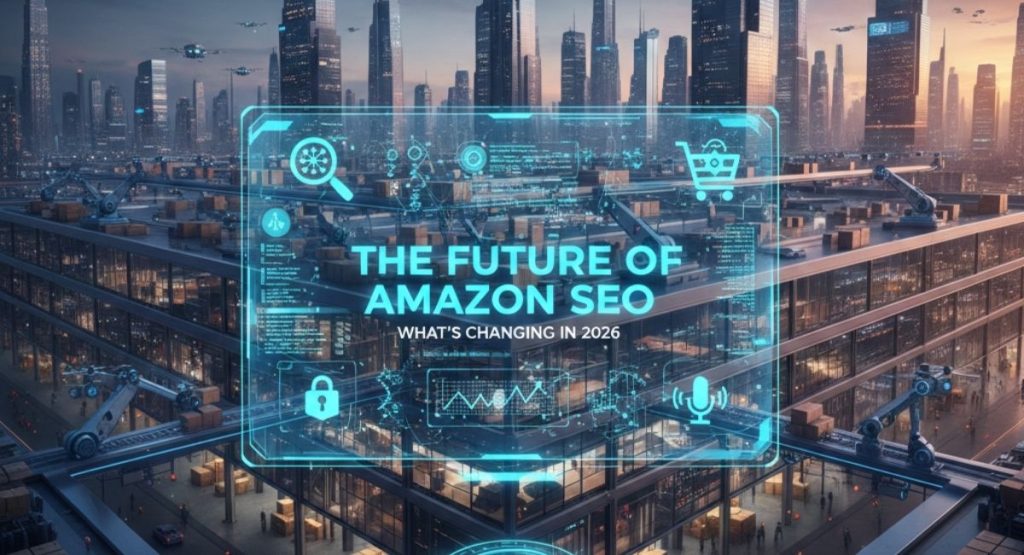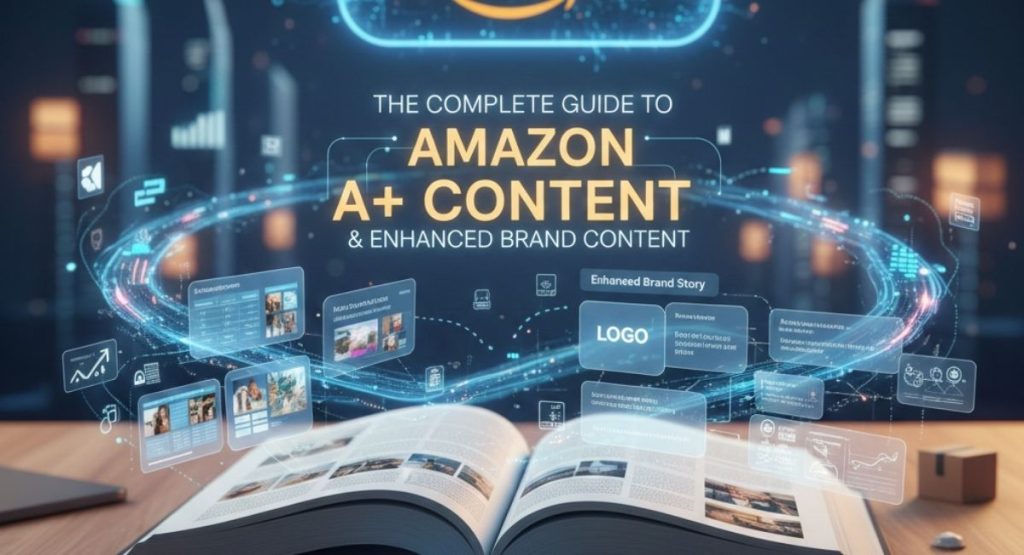Artificial Intelligence (AI) has rapidly transformed search engine optimization (SEO) from a data-heavy discipline into an intelligent, predictive, and highly automated practice. While AI-based SEO tools streamline research, automate content creation, and forecast keyword trends with impressive precision, they also raise new ethical questions about accuracy, originality, and human control. This guide explores how businesses can balance automation with human oversight to maintain ethical AI-SEO practices that respect transparency, creativity, and user trust.
To understand where ethical boundaries lie, it helps to look at how AI is applied in real-world SEO workflows—from AI content generation and link-building to automated technical audits. As companies adopt AI-powered strategies, the goal should not be to replace human thinking but to enhance it. According to Maxim Blu’s AI SEO services, the most sustainable results come from blending human editorial judgment with machine-driven efficiency.
The New Face of SEO in the Age of AI
AI has revolutionized SEO in several ways. Algorithms can now predict search intent, analyze competitor behavior, and even generate entire blog posts optimized for semantic search. Tools like machine learning content assistants or keyword generators save hours of manual work, enabling brands to focus more on strategy. However, this automation also introduces challenges such as content homogenization, bias in data-driven insights, and a decline in authentic brand voice.
Ethical AI SEO focuses on ensuring that automation enhances credibility rather than diminishing it. A responsible SEO framework should involve transparency about AI use, regular human review, and respect for search engine guidelines that discourage manipulative or deceptive practices.
Why AI-SEO Ethics Matter
The ethical use of AI in SEO matters because it directly affects three major stakeholders: users, search engines, and brands. When automation operates without oversight, the line between optimization and manipulation blurs. AI-generated text can unintentionally mislead users, plagiarize existing content, or promote misinformation if not reviewed carefully.
Here are a few reasons why ethical oversight is essential:
- User Trust: Readers rely on search engines for accurate and reliable information. If AI-generated content spreads misinformation, it erodes trust in both the brand and the platform.
- Search Engine Compliance: Google’s Search Essentials emphasize experience, expertise, authoritativeness, and trustworthiness (E-E-A-T). AI cannot satisfy these without human insight.
- Brand Identity: Automated writing often lacks emotional depth and authenticity, both of which are vital to branding. Oversight ensures the brand’s personality stays intact.
- Accountability: Humans must remain responsible for AI outputs. Delegating all decisions to automation can lead to untraceable errors.
The Intersection of AI Automation and Human Oversight
Automation is powerful when guided by human strategy. The challenge lies in determining how much oversight is necessary to keep AI’s efficiency without losing human quality control.
| AI Function | Automation Potential | Human Oversight Role | Ethical Concern |
| Keyword Research | Very High | Approving relevance and intent | Data bias or irrelevant targeting |
| Content Creation | High | Editing tone, accuracy, brand alignment | Plagiarism, lack of originality |
| Link Building | Moderate | Verifying source authenticity | Spam or unethical link schemes |
| Technical SEO | High | Monitoring automated fixes | Over-optimization or data privacy |
| Performance Analysis | Very High | Contextual interpretation | Misleading metrics or biased insights |
This table shows that the higher the automation level, the greater the need for ethical review. Responsible AI SEO ensures each stage of optimization aligns with long-term transparency and user benefit.
Building an Ethical AI-SEO Framework
Implementing responsible AI SEO begins with an ethical framework. This framework guides decision-making and keeps automation accountable to human values. Below are key components:
- Transparency and Disclosure
Clearly disclose when AI contributes to content creation. Transparency builds user confidence and differentiates genuine expertise from machine-assisted text.
For example, a company might mention: “This article was enhanced using AI-assisted keyword research and reviewed by our content team.” - Data Integrity
AI depends on training data. Ensuring that data sources are unbiased and relevant reduces the risk of misleading conclusions. Regular audits can detect bias or outdated datasets before they affect rankings. - Human Review Protocols
Establish a multi-step editorial review. Editors should check AI-generated content for factual accuracy, tone, structure, and compliance with SEO best practices. - Content Originality Verification
Use plagiarism checkers and semantic similarity tools to maintain originality. Avoid repurposing AI-generated text that mirrors competitor content. - Ethical Link Building
Use AI to identify opportunities, but validate every backlink manually to ensure it’s legitimate and contextually relevant. As noted by Maxim Blu’s off-page SEO services, ethical link-building depends on trust-based relationships, not automated exchanges. - Data Privacy
AI SEO tools collect user and website data. Ethical practices involve limiting data collection, encrypting sensitive information, and complying with regulations like GDPR and CCPA.
Humanizing AI-Generated Content
The most common criticism of AI SEO is that it produces robotic, generic writing. To counter this, human editors must infuse emotion, storytelling, and contextual depth.
Some ways to humanize AI-assisted content:
- Add personal experiences or examples from real clients.
- Include insights from expert interviews.
- Edit phrasing for tone and rhythm.
- Use natural transitions and conversational language.
A human touch helps AI-generated content feel authentic and relatable, increasing engagement and dwell time. Readers don’t connect with algorithms; they connect with voices that understand their needs.
Balancing Efficiency and Ethics
Automation is meant to enhance productivity, not eliminate ethical reflection. While AI can produce data-driven recommendations quickly, only human judgment can decide whether those actions serve the audience’s best interest. For example, AI may suggest keyword stuffing to rank faster, but an ethical SEO expert would recognize the risk of penalties.
Responsible AI SEO involves slowing down automation at key decision points. Instead of allowing tools to post content directly, schedule human review checkpoints. This hybrid approach preserves both efficiency and integrity.
Monitoring and Auditing AI SEO Performance
Ethical SEO is ongoing, not one-time. Continuous monitoring ensures AI systems remain aligned with brand values and search engine policies. Conduct quarterly audits to review AI tool accuracy, content quality, and ranking performance.
Audits can include:
- Reviewing keyword intent alignment.
- Checking for duplicate or repetitive phrasing.
- Ensuring metadata and schema markup are consistent.
- Evaluating backlink health and authenticity.
A comprehensive audit process can be supported through Maxim Blu’s SEO audit services, which blend automated analytics with human interpretation to maintain accuracy and trust.
Common AI Automation Risks
As automation grows, several risks can affect both SEO strategy and reputation:
- Data Bias – Algorithms learn from existing datasets. If the dataset is biased, AI may amplify incorrect assumptions.
- Over-Optimization – AI might prioritize ranking factors over user experience, producing keyword-heavy, unreadable content.
- Loss of Creativity – Relying too much on templates and predictive text limits originality.
- Compliance Gaps – Automated systems may unintentionally violate search guidelines.
- Misinformation – AI can produce convincing but inaccurate statements, especially on technical or medical topics.
To counter these risks, balance automation with human discernment. Train your SEO team to treat AI as an assistant, not an authority.
Integrating AI Ethics Into SEO Strategy
Building ethical AI SEO into strategy means embedding it at every stage of the workflow. Start with intention: define what values guide your brand’s digital presence. Then design workflows that reflect those values.
Step-by-step guide to integrate AI-SEO ethics:
- Set Clear Ethical Principles
Establish policies for AI use—like transparency, originality, and fairness. - Choose Responsible AI Tools
Use platforms with clear data policies and explainable outputs. Avoid black-box algorithms that can’t justify their recommendations. - Educate Your SEO Team
Conduct workshops on ethical AI SEO practices, emphasizing the importance of human verification. - Use Layered Oversight
Combine automated detection (e.g., plagiarism checks, keyword density analysis) with editorial reviews for final approval. - Measure Ethical Performance
Evaluate not just rankings, but also user satisfaction metrics like bounce rate, engagement, and trust indicators.
AI Content Oversight in Practice
Ethical oversight means assigning specific human roles in the AI workflow. Editors, analysts, and strategists should have clear responsibilities in supervising automation.
| Role | Responsibility in AI SEO Oversight |
| SEO Strategist | Defines ethical goals and content direction |
| Editor | Reviews AI-generated drafts for tone and accuracy |
| Data Analyst | Monitors keyword performance and detects anomalies |
| Compliance Officer | Ensures adherence to search and privacy laws |
| Content Writer | Adds originality and human touch to AI output |
When everyone understands their part, ethical SEO becomes systematic rather than reactive.
As you refine this workflow, integrating technical SEO services ensures the AI tools you use align with technical standards like structured data accuracy and mobile optimization—without compromising human ethics.
The Future of Responsible AI SEO
As search engines evolve to include AI-powered summaries, zero-click results, and voice search, the ethical landscape will continue to shift. AI-generated snippets could change how users consume information, making accuracy even more critical.
Trends suggest that brands adopting responsible AI SEO will earn long-term trust. Google and Bing increasingly reward transparency, authenticity, and user experience. Brands that prioritize these principles now will stand out in a saturated digital market.
Additionally, AI-driven personalization while powerful raises privacy concerns. Balancing personalization with ethical data handling will define future SEO leadership.
Practical Checklist for Ethical AI SEO
| Category | Checklist Questions |
| Transparency | Do we disclose AI-generated content involvement? |
| Oversight | Is every AI output reviewed by a human editor? |
| Data | Are our AI tools using verified and unbiased datasets? |
| Compliance | Does our process meet search engine and privacy laws? |
| Content Quality | Does our writing maintain originality and tone? |
This checklist serves as a quick reference to ensure every SEO action aligns with ethical standards.
Trending FAQs on AI-SEO Ethics
1. Can AI-generated content rank on Google?
Yes, if it meets Google’s quality standards. The key is that content must provide value, accuracy, and originality—elements best achieved with human oversight.
2. How can companies ensure AI SEO is ethical?
Establish internal policies, use transparent AI tools, and conduct regular reviews of both automation and data sources.
3. Is AI content creation the same as plagiarism?
No, but it can become plagiarism if the AI reproduces existing material. Always run originality checks before publishing.
4. Does AI replace SEO professionals?
AI supports professionals by automating repetitive tasks. It cannot replace human strategy, creativity, and ethical judgment.
5. What are the biggest AI automation risks in SEO?
Data bias, misinformation, over-optimization, and loss of brand voice are the primary risks.
6. How does human oversight improve AI SEO?
Human editors ensure that AI-generated content aligns with brand values, meets compliance standards, and resonates with audiences.
7. Can AI help with multilingual SEO ethically?
Yes, with human review. AI can translate and localize content efficiently, but linguistic nuances require human refinement to maintain accuracy.
8. What role will AI ethics play in the future of digital marketing?
Ethical AI will become a key differentiator. Consumers are increasingly aware of automation, and transparency will become a trust signal in marketing.
Final Thoughts
Ethical AI SEO is not about restricting innovation but guiding it responsibly. Automation can amplify efficiency, but only human oversight can ensure that optimization aligns with truth, creativity, and long-term brand trust. The next phase of SEO isn’t just algorithmic—it’s ethical, intelligent, and human-centered.
Businesses that integrate responsible AI SEO into their strategies today will not only maintain compliance but also future-proof their online presence. For professional guidance on building a balanced AI-driven SEO strategy with human ethics at its core, explore Maxim Blu’s SEO strategy services a trusted partner in navigating the evolving intersection of AI, ethics, and digital marketing excellence.





